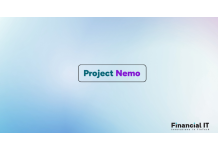Adyen and Uber Expand Global Partnership to Power New...
- 09.02.2026 10:35 am
How Digital Transformation Is Reshaping the Automotive...
- 03.02.2026 01:40 pm
Automat-it And AWS Expand Strategic Collaboration...
- 26.09.2025 10:05 am
ClearScore Launches ‘ClearScore Everywhere’, A New...
- 16.07.2025 01:37 pm
Ebury Becomes Certified Xero App Partner to Drive...
- 14.05.2025 09:15 am
OpenText Announces Availability Of Titanium X,...
- 01.04.2025 02:25 pm
Telefónica Opens a Dedicated Centre of Excellence for...
- 04.03.2025 01:45 pm
Project Nemo and Fintech Fringe Launch Innovation...
- 04.02.2025 01:35 pm
Airwallex and Carwow Partner to Modernize Car Buying...
- 09.01.2025 04:15 pm
bunq Becomes First Bank In The World To Launch Real-...
- 18.12.2024 08:45 am
Allfunds Introduces ANA, Its New AI-Powered Assistant...
- 16.12.2024 07:45 am
Greenlight Brings Parents Extra Peace of Mind with New...
- 06.12.2024 01:45 pm






















